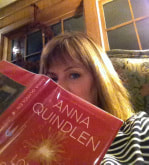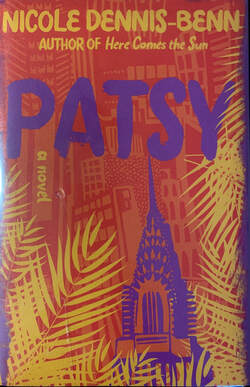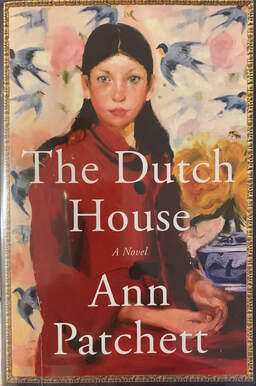Mothers Who Run AwayI recently finished two books on mothers who abandoned their children. The first was Patsy by Nicole Dennis-Benn, whose main character is a young, single and gay Jamaican women who leaves Jamaica and her five year old daughter named Tru to start a new life in the United States. Her excuse is she wants to provide Tru, a better life. The night Patsy tells Tru she is leaving is excruciatingly painful to read.
"Patsy can vaguely make out the expression on her daughter's face. 'It will only be for a few months', she says to Tru unable to look straight at her. 'Why?' Tru asks. 'Why yuh going without me?' Patsy sighs. She quietly praises JPS in this moment. the darkness is helpful as she struggles to find the words behind the veil. What can a young woman on the brink of defeat say to the questioning face of her five-year-old daughter? Where is the honor in her daughter knowing she owns nothing? Not her dream. Not her life. Not herself. What can she give her." Patsy knows she will never return to Jamaica.and finds out quickly that life is not easy for an illegal alien in Brooklyn. Ten years go by before she contacts her daughter who is now 16 years old. Those ten years have been devastating for Tru and for Patsy. It is a painful story to read about a child who struggles from the loss of her mother's love every day and a mother filled with guilt because she cannot love her child. The second novel is The Dutch House by Ann Patchett. Maeve and her brother are devastated when their mother one day just leaves the house and doesn't return. Their father remarries to a women with two children who is only interested in his mansion "The Dutch House" and his money. Ten-year-old Maeve is left in charge of her young brother. The two become very close and lean on each other over the years. The stepmother despises her stepchildren. After their father dies, the stepmother inherits everything and leaves them with nothing. When Maeve become critically ill, her long lost mother shows up at the hospital. Maeve wants dearly to have her mother and the relationship she has always dreamed. Her brother is not as forgiving and thinks, "There is no story of the prodigal mother. The rich man didn't call for a banquet.to celebrate the return of his erstwhile wife. The sons, having stuck it out for all those years at home, do not hang garlands on the doorways, kill the sheep, bring forth the wine. When she left them she killed them all, each in his own way, and now, decades later, they didn't want her back. they hurried down the road to lock the gate, the father and the sons together, the wind whipping at their coats. A friend had ripped them off. They knew she was coming and the gate must be locked." Their mother didn't feel she was needed, they had servants and a cook that performed her motherly duties. She thought her children would be fine with their father growing up in the Dutch House. There are others in the world that needed her help. She goes on the care for the poor in India, then back to the United States and to her hometown.having lived the last 10 or so years in the same city as her children without contacting them. "Why India?" I had meant to sit through the conversation in silence but on this point my curiosity got the better of me...."I read an article in a magazine about Mother Teresa, how she asked the sisters to send her to Calcutta to help the destitutes. I can't remember what magazine it was now. Something you father subscribed to." I really enjoyed the story about the Dutch House. Patchett made a house come alive.
0 Comments
|

Kathy Corey
I'm an expert amateur or maybe an amateur expert. Archives
May 2021
Categories
All
|


 RSS Feed
RSS Feed
